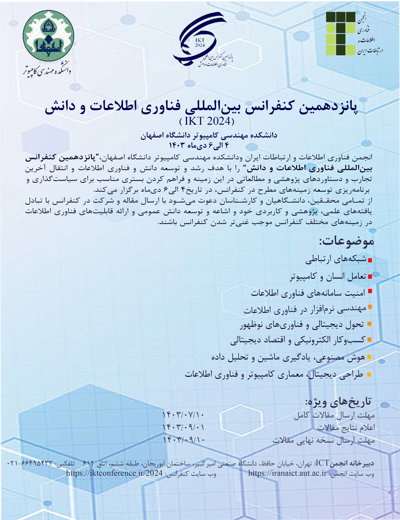0% Complete
Authors :
Keywords :
Abstract :
List of archived papers
Saeid Seyedi - Hatam Abdoli
Hossein Sekhavaty-Moghadam - Marzieh Hosseinkhani - Dr Azadeh Mansouri
Zahra Hossein-Nejad - Mehdi Nasri
Armin Pishehvar - Eghbal Mansoori - Abbas Mehrbaniyan - Reza Tahmasebi
زهرا کلوندی - دکتر مهدی سخائی نیا زهرا کلوندی - مهدی سخائی نیا -
MAHDI OMRANI - Masoud Shafiee - Siavash Khorsandi
روح اله رشیدی - فرساد زمانی بروجنی - محمد رضا سلطان آقایی - هادی فرهادی
Hosein Mohammadi Firozjae - Javad Zeraatkar Moghaddam - Mehrdad Ardebilipour
Nasim Alikhani - Abbas Mohammadi
مها العطوان - جعفر پورامینی





